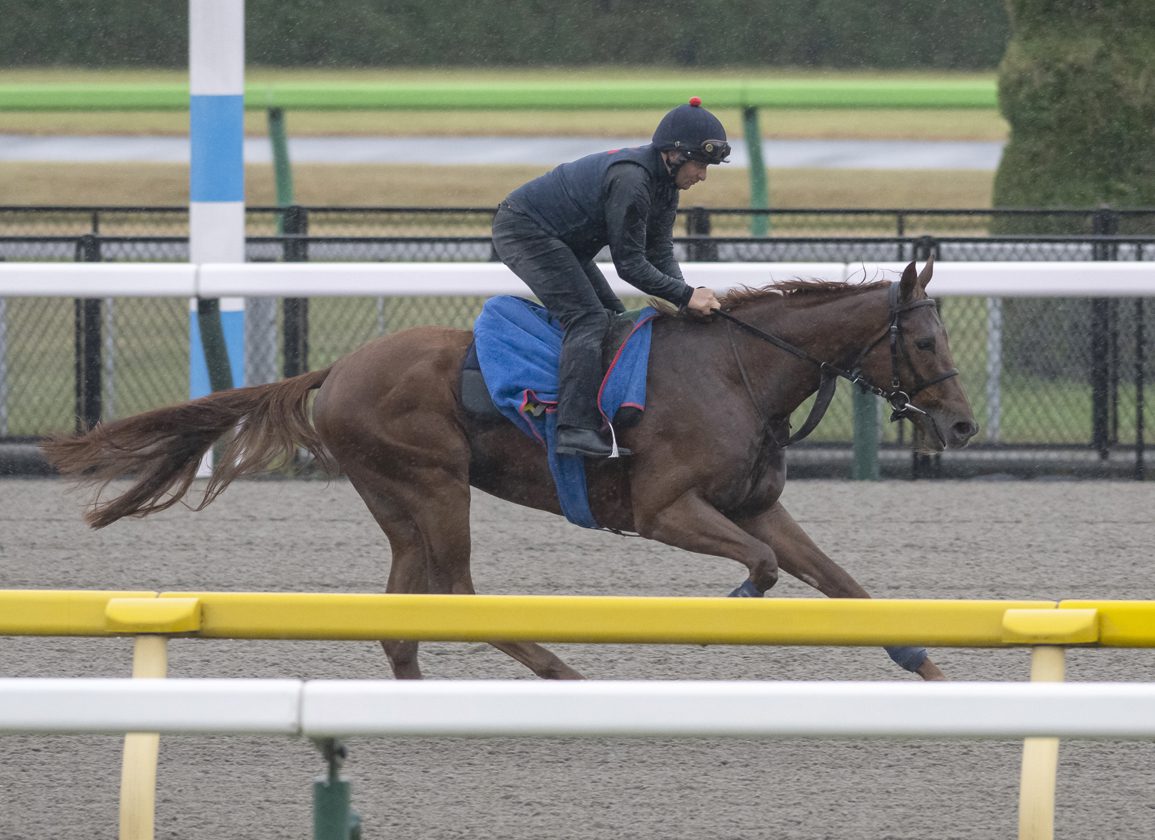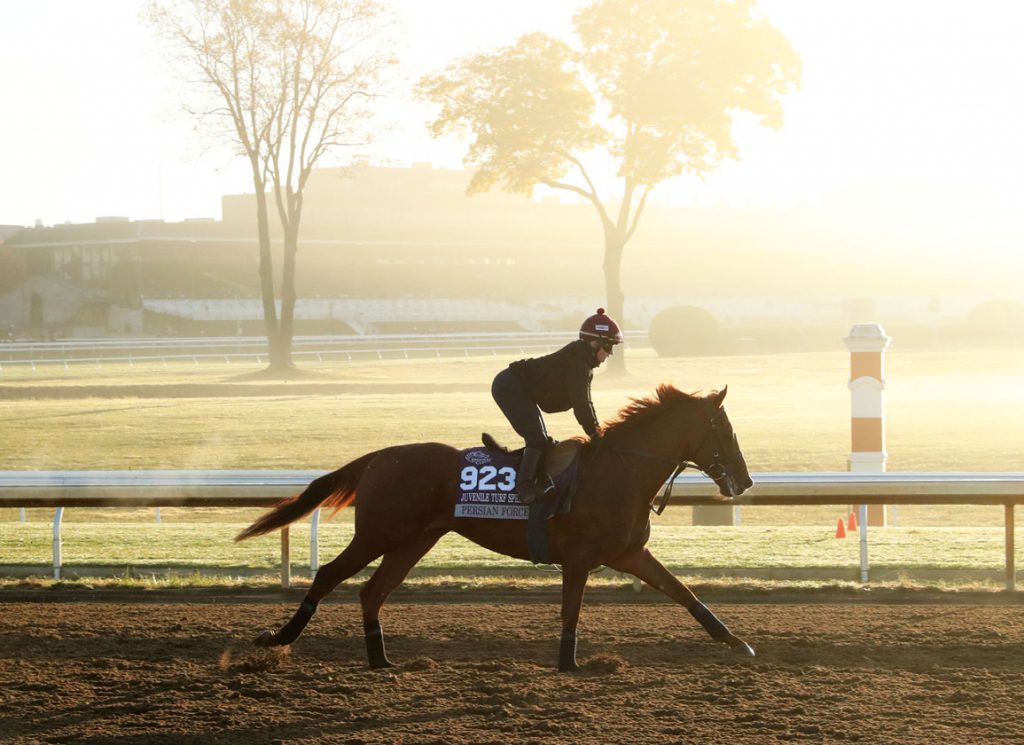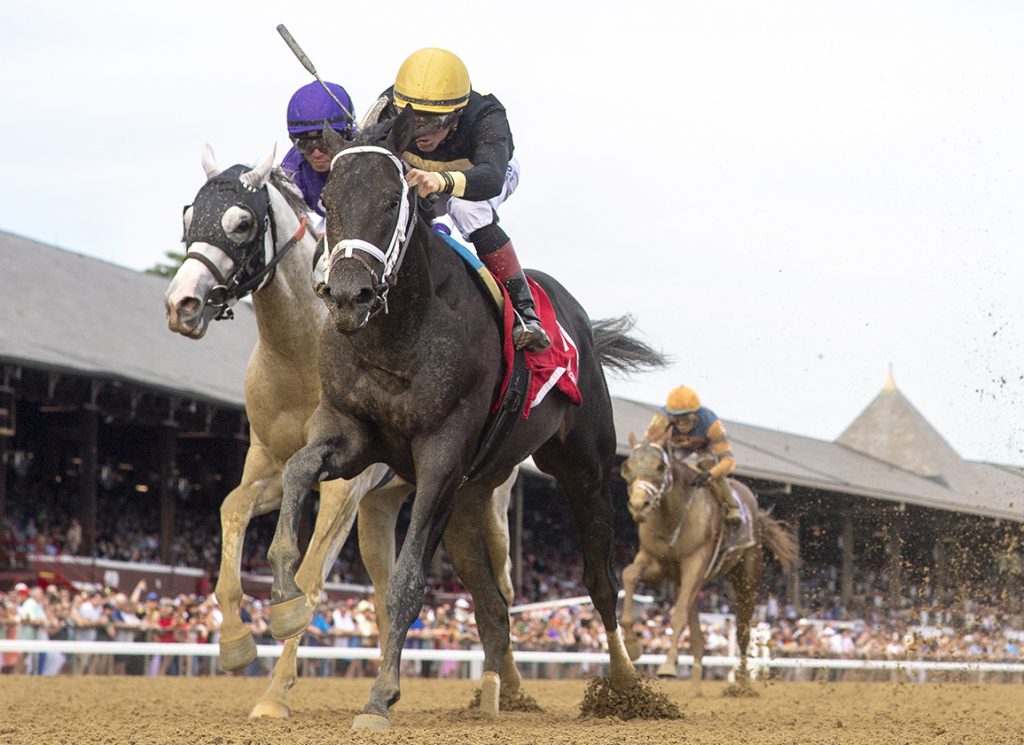By Chris McGrath
We can harness Thoroughbreds to our best and worst, to our altruism or avarice–but thankfully we will never alter the essential, inherent wonder of the breed, nor maintain the illusion that we are ever truly in control of its destiny.
There's a genuine possibility, this weekend, that a German colt could elevate himself to the top of the global sophomore crop by winning the G1 Japan Cup. Yet Tünnes (Ger) (Guiliani {Ire}) was a wholly inadvertent acquisition at the Baden-Baden yearling sales, his purchaser having dropped out at €20,000 only to discover that he had persevered, unwittingly, to the fall of the hammer at €38,000, by the gesticulations accompanying his cell phone conversation.
You could seek no better example of the way horses confound our best-laid calculations, whether for good or ill. In this game, your bad luck will frequently turn out to be good luck; and vice versa. And that defining mystery will always abide, no matter how (or with what motives) we manipulate the nobility of the equine spirit.
Now, as it happens, this same colt also offers to substantiate the mirage of coherence so teasingly within reach of those of us who owe our livelihoods to this business. While his breeder owns but a single mare, she has famously also produced an Arc winner; while Tünnes is inbred as close as 3×3 to a half-sister to Urban Sea (Miswaki) herself.
On one level, then, here's a horse that can make sense of the great puzzle. We can be like the fellow who notoriously telegraphed from the casino at Monte Carlo: “System working well, send more money.”
Yet while this particular family belongs to perhaps the most precious seam of the entire European gene pool, still the market persists not only in undervaluing the kind of ore preserved by the strictures on German breeding, but in prizing its shallow opposites.
The German guarantee of soundness and stamina, through stallions that stand consecutive seasons of training without medication, has a moral equivalence with the Derby as a historic platform for the kind of sires we should be using. This week, the most inspired a commercial breeder of all reiterated his faith in Epsom as “the complete test of the horse”. John Magnier affirmed that “a horse has to have everything to win” there: speed, stamina, soundness, courage and temperament.
Yet this was also the week when a relative novice to the game showed that he has quickly grasped the contrasting criteria of the commercial market, in Britain and Ireland at any rate, by retiring Persian Force (Ire) to stud as a 2-year-old. This colt, last seen finishing fourth at the Breeders' Cup, duly emulates his own sire Mehmas (Ire), who was similarly deemed to have proved everything necessary as a fast and precocious juvenile.
As I've often stressed, the Classic Thoroughbred actually retains far more commercial respect in the United States, where the ultimate objective is not speed alone but the robustness (and indeed stamina) to carry it through a second turn on the first Saturday in May.
This has never adequately penetrated the ignorance of today's European horsemen. But then why should Americans expect one prejudice to be renounced, while some of them remain so stubborn in reinforcing others? Their resistance to HISA, for instance, seems to have been brazenly coupled in the courtroom “wagering”, so to speak, with a quite extraneous ideological agenda.
Another way in which American horsemen seem determined to substantiate prejudice against their own product is in the commercial market's disdain for turf. For all the signs of progress here–in the purses at Kentucky Downs, for example, and growing investment at European auctions–the disrepair of some premier American tracks feels thoroughly discouraging. Evidently we can expect zero grass racing at Fair Grounds before Christmas, while the “weeds” at Churchill are equal to just one of the dozen races scheduled Saturday.
It's a fascinating card, all the same, exclusively contested by juveniles. After revisiting the legacy of Leslie's Lady in this space last week, it's poignant to see her final foal (by Kantharos: some distinction, dude!) make her debut in the fourth, while the final race features a seven-figure sibling to Rachel Alexandra (Medaglia d'Oro) by her sire's son Bolt d'Oro.
That lad, of course, will treasure every available cent in what remains a remarkable race for the freshman sires' championship. The GII Kentucky Jockey Club S. could prove decisive, with two of the three protagonists prominently represented: Good Magic by Curly Jack, and Bolt d'Oro by Instant Coffee.
The road to the Kentucky Derby makes few other detours through its host track, and we saw with Rich Strike (Keen Ice) how important a proven relish for the surface can be. The first horse to win both this race and the Derby (1927-28) was Reigh Count, who was sent over the water as a 4-year-old to win the Coronation Cup over the Derby course, and run second in the Ascot Gold Cup over 2 1/2 miles. (What was I was just saying about how the Europeans could use some dirt stamina?!)
With Count Fleet as his principal heir, Reigh Count proved a precious source of toughness and durability in the breed. However, the first horse to win the Kentucky Derby after a reconnaissance in this race at two, when finishing third, had been Behave Yourself seven years previously. It is said that Colonel Bradley eventually donated him as a cavalry sire, because he did not wish to contaminate the breed by replicating such an inferior specimen.
So there you have it. Even if horses will always remain agents of chaos, they will also tell us plenty about the kind of people who utilize their generosity–either for the good of the breed, as was contrastingly the case with both Reigh Count and Behave Yourself, or as a vehicle for their own cynicism or self-interest.
Not a subscriber? Click here to sign up for the daily PDF or alerts.








